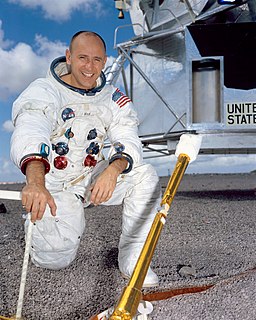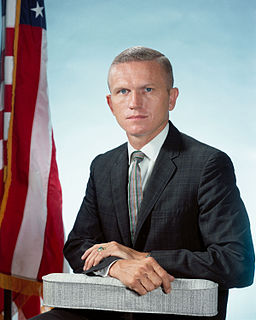A Quote by Jim Lovell
Mars is a long ways away. The moon is only 240,000 miles, but Mars is in the millions. It's too risky without spending more time going to the moon.
Related Quotes
People say, oh we just need charismatic leaders to continue on to Mars. Now we've gone to the moon, of course Mars is next. No. Mars was never, of course, next. It is next if you think we went to the moon because we're explorers, but if you know we went to the moon because we were at war then we're never going to Mars. There's no military reason to do it, to justify the expenditure.
If we go back to the moon, we're guaranteed second, maybe third place because while we are spending all that money, Russia has its eye on Mars. Landing people on the moon will be terribly consuming of resources we don't have. It sounds great - 'Let's go back. This time we're going to stay.' I don't know why you would want to stay on the moon.
To send humans back to the moon would not be advancing. It would be more than 50 years after the first moon landing when we got there, and we'd probably be welcomed by the Chinese. But we should return to the moon without astronauts and build, with robots, an international lunar base, so that we know how to build a base on Mars robotically.
We're going to go to the moon. We're going to go on to Mars. We're going to set up a base on the moon. OK, but no money to pay for it, nothing in the budget for it. And so the decision made at that time was to cancel the whole shuttle program to save money, which I think was very, very short sighted.
I know enough about the moon to know how unpleasant and inhospitable it is. . . . I know enough about Mars to know that you can't live there, you can't settle it. Mars and the moon are two ugly islands. So then, you say, what's the point of going to them? The point is to be able to say I've been there, I've set foot on them, and I can go further to look for beautiful islands.


























